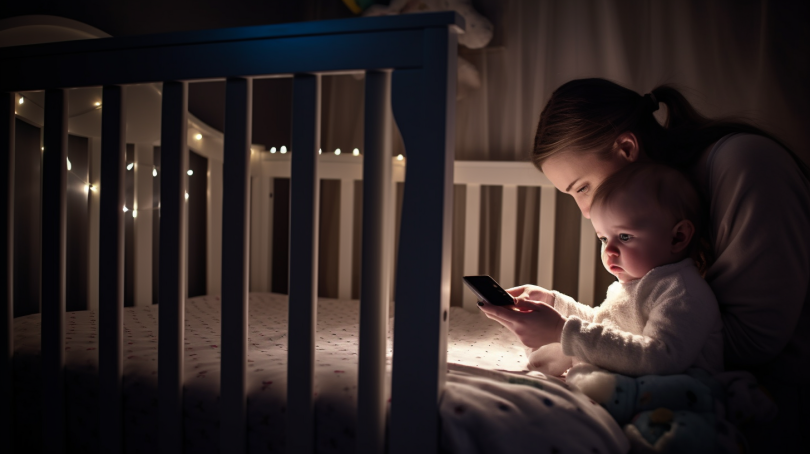Sleep training your baby can be a challenging and stressful experience for new parents. While establishing healthy sleep habits is essential for your baby’s well-being, it can also be difficult to know when to check on them during the night without disrupting their sleep schedule. In this comprehensive guide, we’ll explore how often you should check on your baby during sleep training, the benefits and challenges of doing so, and offer practical tips and solutions to help make the process easier for both you and your little one.
The Benefits of Sleep Training
Before we dive into how often to check on your baby during sleep training, let’s take a moment to discuss why it’s so important. Establishing healthy sleep habits early on can have a significant impact on your baby’s physical and emotional health. According to the American Academy of Pediatrics (AAP), infants who get enough sleep are at a lower risk for obesity, diabetes, and other health problems later in life.
In addition to physical health benefits, adequate sleep is also critical for your baby’s cognitive development. During sleep, the brain processes new information and consolidates memories, helping babies learn and retain new skills.
The Challenges of Sleep Training
While there are many benefits to sleep training, it’s not without its challenges. For one thing, every baby is different, which means there’s no one-size-fits-all approach that works for everyone. What works for one family may not work for another.
Another challenge is dealing with nighttime awakenings. It’s common for babies to wake up multiple times throughout the night in the early months of life. Knowing when to check on them without disrupting their sleep schedule can be tricky.
How Often Should You Check on Your Baby?
So how often should you check on your baby during sleep training? The answer depends on a variety of factors, including their age, sleep habits, and overall health.
For newborns, it’s generally recommended that parents check on them every 2-3 hours during the night for feeding and diaper changes. As your baby gets older and their sleep habits become more established, you may be able to gradually increase the length of time between nighttime check-ins.
It’s important to keep in mind that while checking on your baby can provide peace of mind, it can also be disruptive to their sleep schedule. If your baby is sleeping soundly and not showing any signs of distress, it’s generally best to let them be.
Signs Your Baby Needs You
While it’s important to give your baby space to develop self-soothing skills, there are times when they may need your help. Here are some signs that your baby may need you during the night:
- Crying or fussing
- Difficulty breathing
- Fever or illness
- Sleep regression or other changes in sleep patterns
- Nightmares or night terrors
If you notice any of these signs, it’s important to check on your baby and provide comfort as needed.
Tips for Checking on Your Baby Without Disrupting Sleep Training
Checking on your baby during sleep training can be a delicate balancing act. You want to make sure that they’re safe and comfortable without disrupting their sleep schedule. Here are some tips for checking on your baby without interfering with their sleep training:
- Use a video monitor: A video monitor can help you keep an eye on your baby without disturbing them. Many video monitors also have features like night vision and sound detection to alert you if your baby wakes up.
- Check on your baby during natural awakenings: Babies often wake up briefly between sleep cycles. If you notice your baby stirring or making noise, wait a few minutes before checking on them to see if they settle back down on their own.
- Keep interactions brief: If you do need to check on your baby, keep interactions brief and avoid turning on bright lights or making loud noises that could stimulate them.
- Establish a consistent bedtime routine: A consistent bedtime routine can help signal to your baby that it’s time for sleep. This can make it easier for them to fall asleep and stay asleep throughout the night.
Conclusion
Sleep training is an important part of establishing healthy sleep habits for your baby. While knowing when to check on them during the night can be challenging, it’s important to strike a balance between providing comfort and allowing them to develop self-soothing skills. By following these tips and being attuned to your baby’s needs, you can help make the process easier for both you and your little one.

